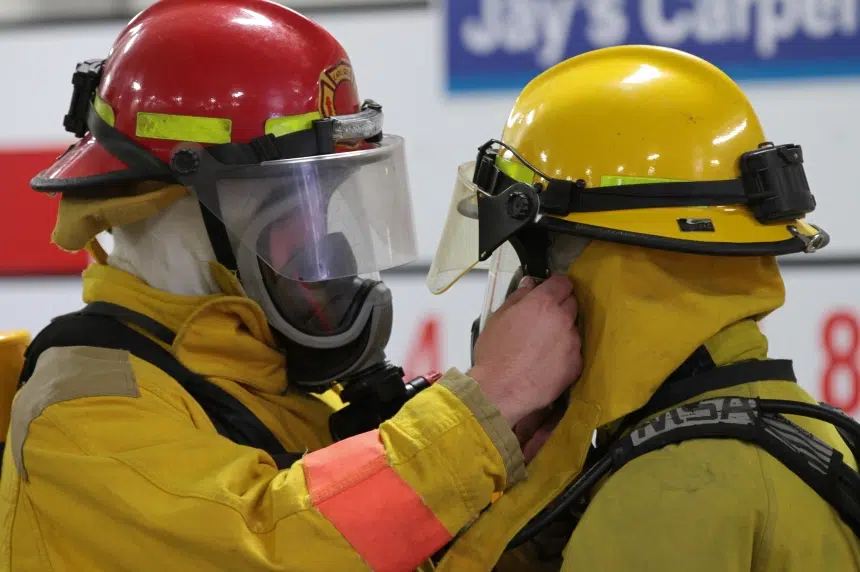WorkSafe Saskatchewan is looking to help firefighters better protect themselves against cancer.
The organization — a partnership between the Saskatchewan Workers’ Compensation Board and the Ministry of Labour Relations and Workplace Safety — launched a new video resource series Monday to help firefighters avoid exposures on the job.
According to a release from WorkSafe Saskatchewan, firefighter cancer is the second-leading cause of work-related occupational disease deaths in Saskatchewan.
Between 2010 and 2018, 23 per cent of work-related occupational disease deaths in the province were from firefighter cancers. In 2020, five firefighters lost their lives to cancer.
“Improving firefighter cancer prevention is one of the top priorities in WorkSafe Saskatchewan’s Fatalities and Serious Injuries Strategy, launched in 2019. As part of the strategy, we worked with industry experts to develop this safe work practices video series,” Kevin Mooney, the WCB’s vice-president of prevention and employer services, said in the release.
“Deaths from occupational firefighter cancer are preventable. Our firefighter safe practice video series is one step in our journey together to help support the prevention of cancer among the brave women and men who serve our communities every day.”
The series features 31 videos that show safe work practices to help firefighters reduce their risk of developing cancer from the hazards they’re exposed to on the job.
The videos are based on practices that were recommended for Saskatchewan fire departments after conversations with a number of professional and volunteer fire departments in 2019.
“In the spring of 2020, WorkSafe Saskatchewan conducted a survey with 141 Saskatchewan firefighters,” the release said. “The survey focused on 26 firefighter cancer prevention items and found multiple gaps in the firefighter cancer preventive measures. The video series was created to fill in the gaps and reinforce preventive measures.”
The series recommends steps such as properly wearing and cleaning all safety equipment, cleaning the inside of vehicles between calls, disposing of contaminants quickly and safely, taking a shower as soon as possible after a fire, and conducting annual medical and skin exams.
“It’s no longer a sign of you’ve been a real tough guy going into a hot fire. That’s no longer acceptable. If you’re not willing to do it for yourself, do it for your co-workers (and) your families,” Lloyd Zwack, president of the Saskatchewan Firefighters Association, said in the release.
“Cancer does not discriminate. It doesn’t matter if you’re a career fireman, professional fireman or a volunteer, it does not matter. You need to start taking actions.”
More information on the video series can be found here.











